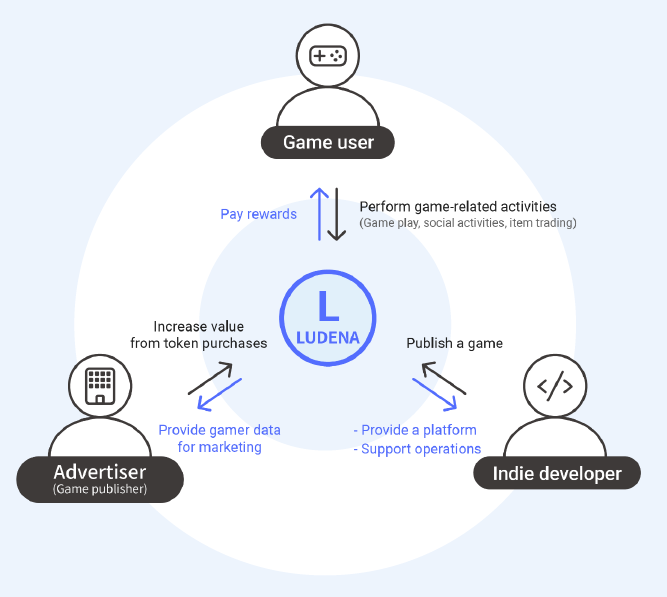We have previously discussed how gaming is becoming a big, important part of the total revenue generated in the market of entertainment, reaching the likes of the music industry (but still ways behind the cinema industry), by moving nearly $200 billion in the entirety of last year, and projected to keep increasing in the next decade.
This is why projects like Ludena Protocol want to disrupt such a promising market, by making it profitable to be a part of the usual interactions between developers, publishers, communities and individual gamers. By offering tokenized rewards to all parties involved, they plan to increase the reach of indie games and improving the engagement of every user, all while keeping the transaction history in a safe, decentralized ledger.
Meaningful Interactions
In its early beginnings, gaming offered a new way for people to spend their free time, giving an added value to the practice of gathering to watch TV, thanks to the interactivity of the games. No longer would people only stare at the content being broadcasted, but they would take part in said content, controlling more and more aspects of what can be seen and heard as time went on.
With multiplayer experiences dating as back as 1972 with Pong, the social aspect of videogames has always been one of the pillars of their success, and it only grew stronger with arcades offering a variety of games for customers to share and compete, and even more with today’s internet connectivity. Social features have now become a staple of gaming as an industry, turning games into ways of engaging with fan bases, as well as adding another layer of involvement with achievements, screenshots and videos ready to be shared instantly.
But these interactions are hardly significant in most of the cases. If the game does not directly promote multiplayer, local or online, the player is not motivated to engage in social activities within the game, because it goes against the very nature of gaming: rewards. Most, if not all, of the actions that a game asks the player to perform are accompanied with a reward, which motivates the user to keep playing and move forward.
Simple Motivation, Great Results
The Ludena Protocol wants to become a pathway for all gamers to earn significant rewards from activities that were previously considered trivial. By merely playing their favorite games, each player can earn Ludena tokens that can be used to purchase in-game items, gift cards from online stores and even be spent in convenience stores or restaurants that implement them.
On the other side of the spectrum, indie developers that integrate the system are compensated based on the proportion of their contributions to the network, both in terms of tokens generated in their games and the number of users they draw in. Additionally, advertisers and publishers can also buy tokens and use them as payment for special offers, advertisement campaigns and cross-game rewards systems.
This will make it possible to create an ecosystem of feedback between all the involved parties of the gaming industry while rewarding those that need it the most, and they are also developing necessary apps like a communication system (GameTalkTalk) and allying themselves with significant business, blockchain and gaming-related partners, getting closer to their goal of a unified platform for worldwide gaming.



